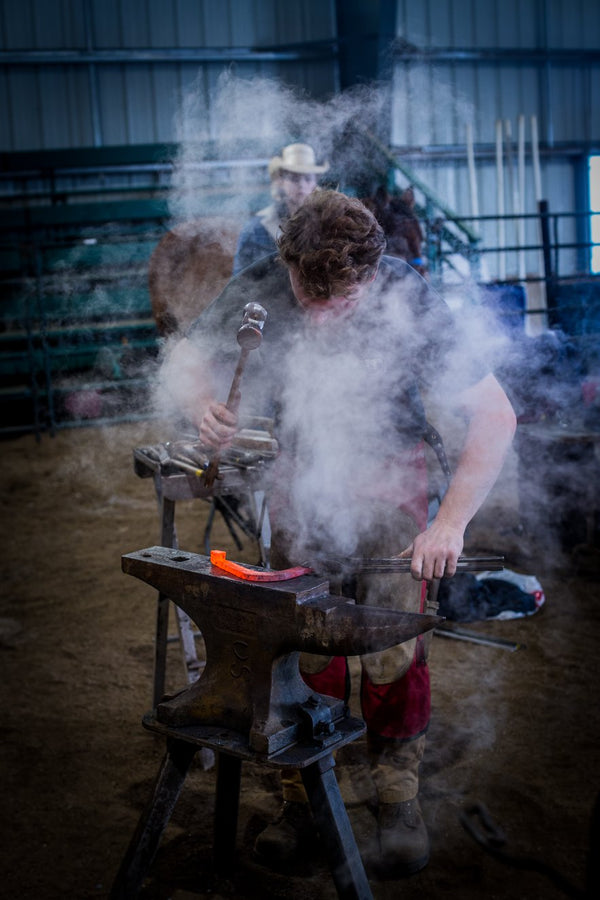The Good Stuff. 2600°F wool is rated for steady work at 2450°F.
Perfect specs for temperatures used forge welding steel.
PLEASE NOTE: All pre-cut lengths are sold in square feet. They are always 2 feet wide (unless otherwise stated).
Did you know? Temperature Ratings posted are MAXIMUMS in Fahrenheit, and the operating temperatures are 150 to 200°F lower. Manufacturing costs of 2600°F wool are double that of 2300°F wool, but it lasts longer, performs better, & is safer at welding temp.
Wool rated at 2300°F will have an operating rating of 2150°F and is fine for a pizza oven but is cutting corners in forges advertised for use at welding heats. Unfortunately, due to the added expense and difficulty sourcing higher temperature wool, 2300°F refractories are the common product in off-the-shelf forges sold worldwide.
Our refractory wool is made of spun ceramic fibers with low thermal conductivity, low heat storage, excellent thermal shock resistance, and high temp stability.
Utilized in forges, kilns, glass-making ovens, fireplace lining, and knife tempering ovens. (see fiberfrax, kaowool, durablanket, inswool, insufrax, cerablanket, superwool)
Note: for Pizza ovens and around fireplace chimney's we have a supply of very cost-effective lower temperature rated 1900°F - 2200°F wool.
4 TIPS:
#1 Tip: Apply our Ceramic Refractory Paint (ITC -100) to your wool or brick.
Our ITC-100 greatly increases heat reflection, liner durability, flux resistance, and forge efficiency (by up to 40%). Stable up to 5000°F, it also has a health benefit by preventing wool fiber from becoming aerosolized. A little goes a long way, and our pricing is remarkable.
Metaphorically: ITC 100 does to a propane forge what a turbocharger does to a diesel motor - it's like free power and efficiency.
#2 Tip: Use wool rated @ 2600°F (no less!) in your Propane Forge.
Propane atmospheric forges have a theoretical combustion temperature limit near 2400°F. 2600°F wool rated for continuous use at 2450°F ensures its thermal stability. This is important because wool heated above its rating becomes aerosolized, and is not healthy to breathe (think asbestos), measurably shrinking over time.
Note: Wool rated at 1800, 2200, or 2300°F will LOOK the same as our 2600°F wool and is much less expensive to manufacture but have constant temp ratings of 150-200°F lower, and I strongly recommend against its use at welding heats.
#3 Tip: 1" Wool + Rigidizer is our best-seller but we also stock 2" Wool
While most forges use a total thickness of 2" of wool, most people double up with TWO layers of the 1" blanket to make fitting within tight spaces and around curves easier. It also allows you the option of replacing only the exposed 1" (half thickness) of the blanket.
Applying our inexpensive spray-on Rigidizer stiffens up the wool blanket, makes it less likely to become compressed over time, and makes it easier to apply ITC-100 Ceramic Refractory Paint.
#4 Tip: Adhesion to Vertical Surfaces
Application is made easier by spraying walls or ceilings with 3M Super 77 Spray quick tack adhesive before 'sticking' wool into place. Mechanical pins or screws into the wool attached to the forge shell instill more durable bracing.
#5 Tip: Filling Gaps, Cracks, and Repairs


















